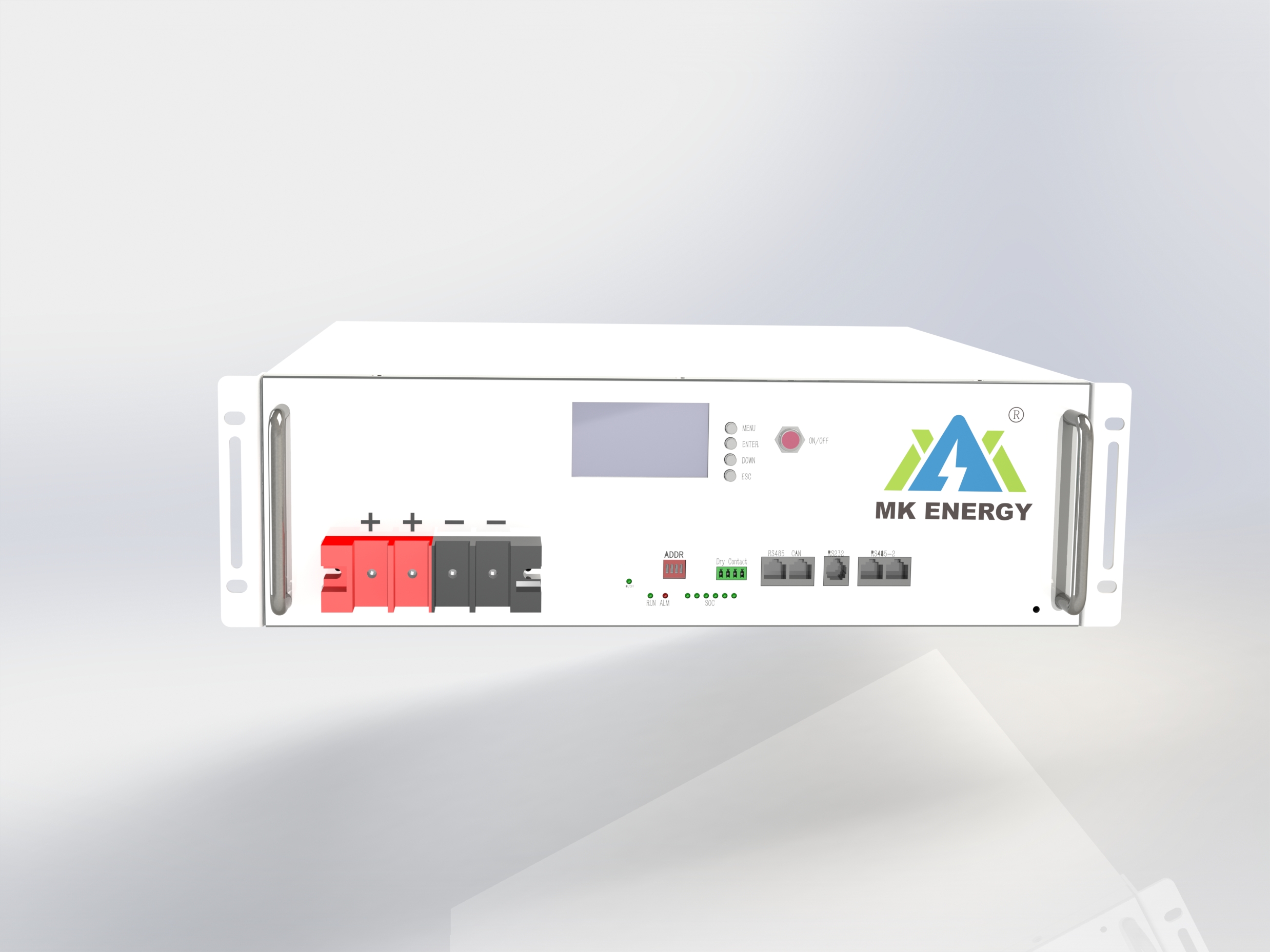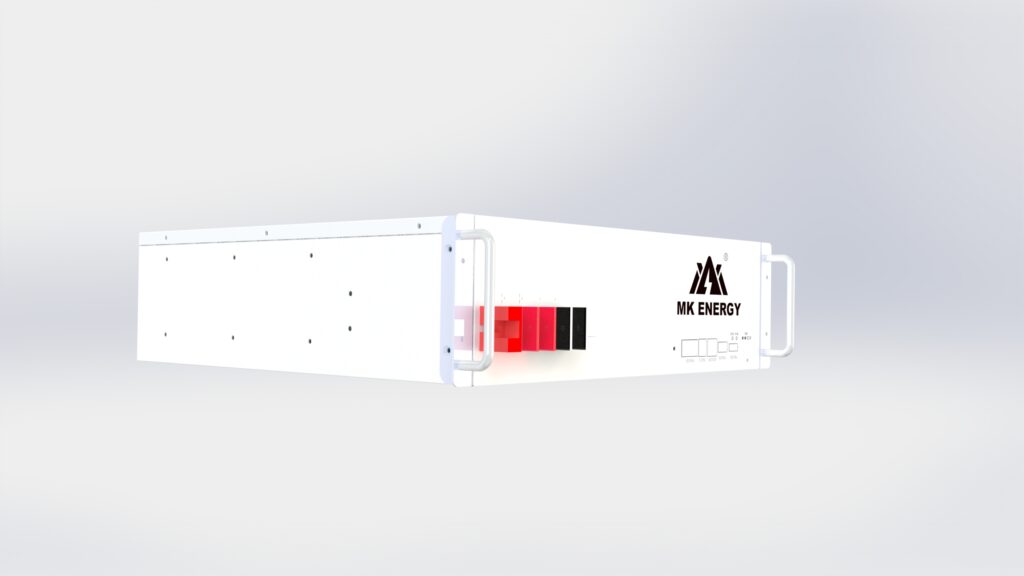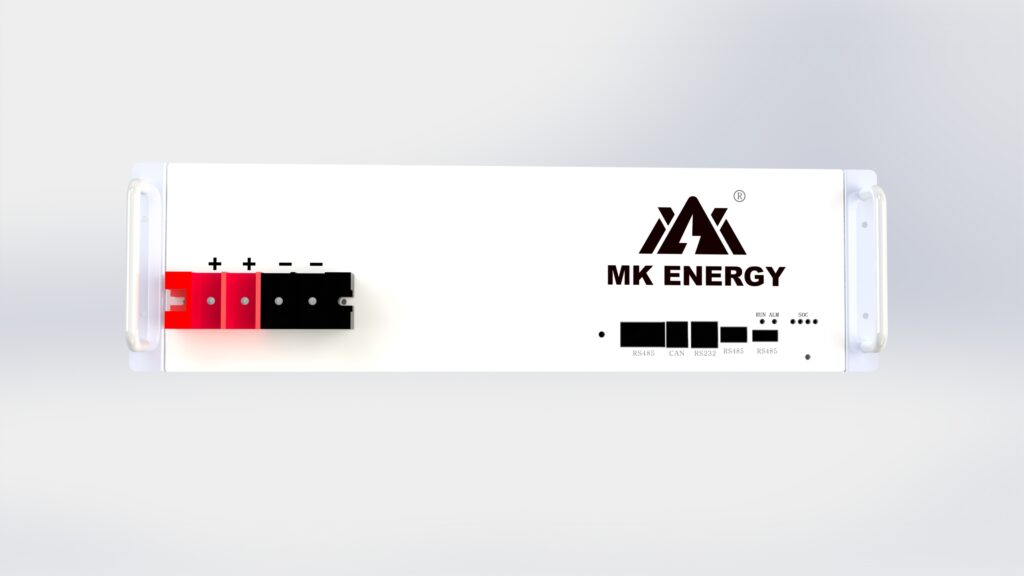Rack-mounted lithium batteries represent a critical advancement in the field of energy storage. Utilizing lithium iron phosphate (LiFePO4) cells, these batteries are organized into modular racks, allowing for scalable and efficient energy storage solutions. This article delves into the design, key applications, and future trends of rack-mounted lithium batteries.
Design and Structure of Rack-Mounted Lithium Batteries
Rack-mounted lithium batteries are designed to maximize energy density and operational efficiency while maintaining safety and reliability. Key components include:
- Battery Modules: Each rack consists of multiple battery modules containing LiFePO4 cells. These modules are designed for easy installation and maintenance, allowing for quick replacement or addition of new modules as needed.
- Battery Management System (BMS): An integral part of each battery module, the BMS monitors and manages the performance of individual cells. It ensures optimal charging and discharging, balances the cells, and provides crucial safety functions such as overcharge, over-discharge, and temperature protection.
- Cooling System: Effective thermal management is essential for maintaining the performance and longevity of lithium batteries. Rack-mounted systems often incorporate advanced cooling solutions, such as forced air cooling or liquid cooling, to dissipate heat generated during operation.
- Structural Framework: The racks are built with robust materials to provide physical protection and support. The framework is designed to optimize space usage and ensure stability during operation, even in demanding environments.
Key Applications of Rack-Mounted Lithium Batteries
Rack-mounted lithium batteries are versatile and suitable for various applications, including:
- Data Centers: Ensuring uninterrupted power supply and enhancing energy efficiency are critical in data centers. Rack-mounted lithium batteries provide reliable backup power, reduce downtime, and support seamless operation during power outages or fluctuations.
- Telecommunications: Telecommunications infrastructure, such as cell towers and network hubs, require stable power supply. Rack-mounted lithium batteries offer reliable energy storage solutions, ensuring continuous service and reducing the risk of communication disruptions.
- Commercial and Industrial Facilities: These batteries are used for peak shaving, load shifting, and backup power. They help businesses manage energy costs, enhance operational efficiency, and ensure resilience against power interruptions.
- Utility-Scale Energy Storage: Rack-mounted lithium batteries are employed in large-scale energy storage projects to stabilize the grid, integrate renewable energy sources, and provide frequency regulation. They help utilities balance supply and demand, reduce reliance on fossil fuels, and support the transition to a more sustainable energy system.
Future Trends in Rack-Mounted Lithium Batteries
The evolution of rack-mounted lithium batteries is driven by technological advancements and increasing demand for efficient energy storage solutions. Key trends shaping the future include:
- Improved Battery Chemistry: Ongoing research and development in battery chemistry aim to enhance the performance, safety, and lifespan of lithium batteries. Innovations in materials and cell design are expected to lead to higher energy densities, faster charging times, and even safer batteries.
- Integration with Renewable Energy: As the adoption of renewable energy sources like solar and wind power grows, rack-mounted lithium batteries will play a crucial role in energy storage. They will help address the intermittency of renewables, providing a stable and reliable power supply.
- Advanced Battery Management Systems: Future BMS technologies will offer more sophisticated monitoring and control capabilities. Enhanced data analytics, predictive maintenance, and real-time performance optimization will improve the efficiency and reliability of battery systems.
- Grid Modernization and Smart Grids: Rack-mounted lithium batteries will be integral to the development of smart grids. They will facilitate dynamic energy management, demand response, and grid automation, contributing to a more resilient and efficient energy infrastructure.
- Sustainability and Recycling: The focus on environmental sustainability will drive improvements in battery recycling and end-of-life management. Advances in recycling technologies will ensure that valuable materials are recovered and reused, minimizing environmental impact.
Conclusión
Rack-mounted lithium batteries are a cornerstone of modern energy storage solutions. Their modular design, versatility, and integration with advanced technologies make them indispensable across various industries. As technological advancements continue and the demand for efficient, reliable energy storage grows, rack-mounted lithium batteries will play an increasingly vital role in shaping the future of energy systems.


-1024x576.jpg)

